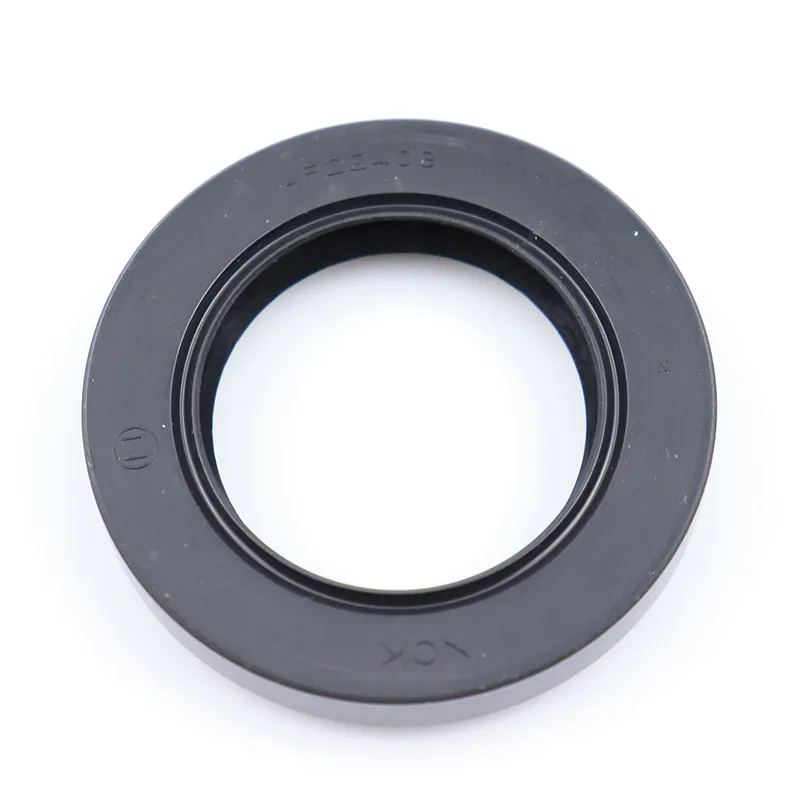ພ.ຈ. . 19, 2024 06:11 Back to list
High Pressure Oil Seal Applications and Benefits in Various Industries
Understanding High-Pressure Oil Seals Importance and Applications
Oil seals, commonly known as grease seals or fluid seals, are essential components in various mechanical systems that operate under high pressure. These seals are designed to retain lubrication and protect the inner workings of machinery from contamination. High-pressure oil seals, in particular, are engineered to withstand significant pressures, making them crucial in a wide range of applications, including automotive, industrial machinery, and hydraulic systems.
Function and Design of High-Pressure Oil Seals
The primary function of a high-pressure oil seal is to prevent the leakage of lubricants while keeping contaminants such as dirt, dust, and moisture from entering the system. They do this by forming a tight barrier around rotating shafts or stationary components. The design of these seals often incorporates materials that can withstand harsh conditions, including extreme temperatures, aggressive chemicals, and significant pressure fluctuations.
Typically, high-pressure oil seals are made from elastomers, such as nitrile, fluorocarbon, or polyurethane. These materials are chosen for their resilience and ability to maintain elasticity under various conditions. The sealing lip, which is the part of the seal that makes contact with the shaft, is often designed with a specific profile to enhance its sealing ability and durability.
Applications of High-Pressure Oil Seals
High-pressure oil seals are employed in a multitude of applications. In the automotive sector, they are used in engines, transmissions, and differential systems to ensure that lubricants remain in place, enhancing performance and extending the lifespan of components. In industrial settings, these seals are vital in hydraulic cylinders and pumps, where the integrity of the sealing mechanism directly impacts operational efficiency and safety.
oil seal high pressure

Hydraulic systems, in particular, rely heavily on high-pressure oil seals. These systems operate under considerable pressure and often involve the transfer of fluids that must remain contained to prevent leaks. A malfunctioning seal can lead to fluid loss, resulting in decreased efficiency and potential hazardous situations.
Challenges and Considerations
While high-pressure oil seals are robust, they are not invincible. Several factors can affect their performance, including improper installation, material degradation over time, and exposure to extreme conditions. Regular maintenance and inspection are essential to ensure that these seals operate effectively. When a seal fails, it is crucial to replace it promptly to prevent extensive damage to the machinery.
When selecting high-pressure oil seals, it is vital to consider the specific requirements of the application, including pressure levels, temperature ranges, and chemical compatibility. Using the right seal for the job can significantly enhance the reliability and efficiency of mechanical systems.
Conclusion
In conclusion, high-pressure oil seals play a crucial role in a variety of mechanical systems by preventing leaks and protecting internal components from contaminants. Their design and materials are tailored to withstand harsh operational environments, making them indispensable in automotive and industrial applications. By understanding the importance of these seals and ensuring proper installation and maintenance, one can significantly improve the performance and longevity of machinery.
-
The Trans-formative Journey of Wheel Hub Oil Seals
NewsJun.06,2025
-
Graphene-Enhanced Oil Seals: Revolutionizing High-Pressure Oil Sealing
NewsJun.06,2025
-
Future of Hydraulic Sealing: Advanced Intelligent TCN Oil Seals
NewsJun.06,2025
-
Don’t Let a Broken TCV Oil Seal Ruin Your Day
NewsJun.06,2025
-
Bio-Inspired Dust Seals for Better Sealing Performance
NewsJun.06,2025
-
Biodegradable and Sustainable Hydraulic Seal Materials
NewsJun.06,2025
-
Top Oil Seal Solutions for Your Industrial Needs
NewsMay.22,2025
Products categories
















